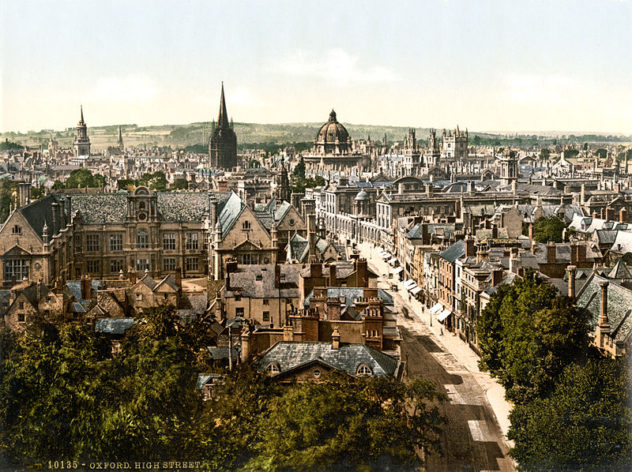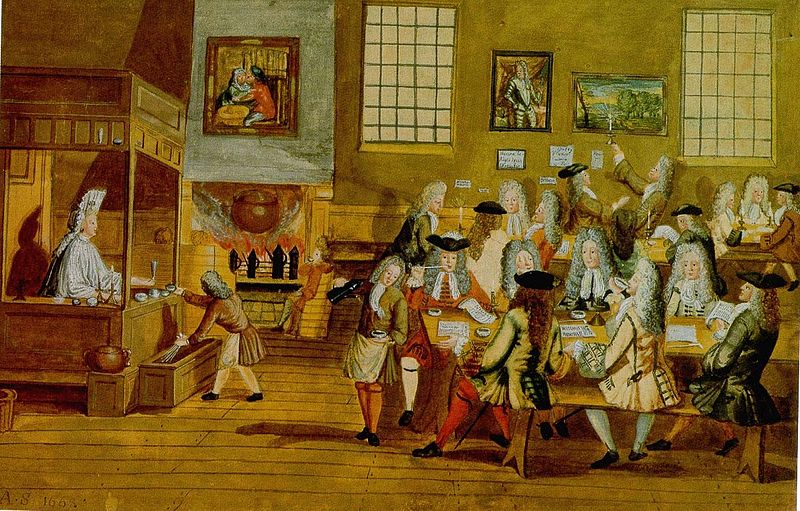Out of all of the coffee houses that cropped up in Europe, beginning the middle of the last millennium, there were none more distinct and influential than those in Oxford, England. Also called “Penny Universities,” England’s coffee houses cultivated a stimulating environment for intellectual conversation.
Penny Admission
17th century coffee houses had to make money somehow, and if it wasn’t through the massive amounts of coffee they were no doubt selling, it was through admission fees. One cent could get you into an Oxford coffee house, where you could then sit, drink coffee, and chat with peers and colleagues about a variety of topics, from current to historical events. This fee, however, didn’t include the price of coffee.
These penny universities were incubators for academic learning, ever since one of the oldest Oxford coffee houses opened in 1654 — The Queen’s Lane Coffee House. English scholars were often regulars who fervently pursued a deeper, academic education and conversation.
The Customers
Among these English intellectuals, Oxford coffee houses saw an eclectic mix of regulars and newcomers. According to The Amusements of Old London by William B. Boulton, “in a society that placed such a high importance on class and economic status, the coffee houses were unique because the patrons were people from all levels of society.”
Students often showed up too, so often that that they would customarily be in these penny universities more than their own schools. Historian Brian Cowan explains that “the coffee house was a place for like-minded scholars to congregate, to read, as well as learn from and to debate with each other, but was emphatically not a university institution, and the discourse there was of a far different order than any university tutorial.”
Oxford’s coffee houses also saw foot traffic from notable Englishmen like Christopher Wren, Peter Pett, Thomas Millington, Timothy Baldwin, and John Lampshire.
While the price of a cup of coffee might’ve gone up a bit in the ensuing centuries, the good news is that the idea of a cover charge has gone out the window.



